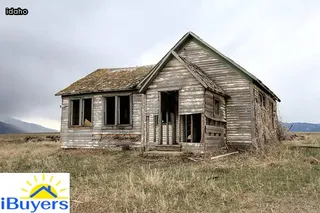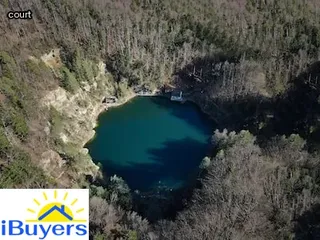Navigating probate laws can be complex and complicated, especially when it comes to real estate in Idaho. Understanding how probate works is an important step for any Idaho real estate owner.
When a person passes away in Idaho, their estate must go through the probate court system before the property can be transferred to the inheritors. In order for this process to take place, there must be an executor of the will named by the deceased prior to their death.
If no executor has been appointed, then the court will appoint one who will inventory and manage all of the assets of the deceased including real estate holdings. From there, creditors are paid off and remaining assets are distributed according to Idaho's probate laws.
It's also important to note that if a person owns land jointly with another individual who has passed away, they can transfer ownership without going through probate as long as they have valid documentation in place at the time of death. Understanding these complexities and how they relate to owning real estate in Idaho is key in navigating these kinds of legal matters.

Understandably, navigating probate laws for Idaho real estate owners can seem overwhelming. The requirements for probate in Idaho are set forth in the Idaho Probate Code and the Uniform Probate Code.
In general, if the decedent’s estate is worth more than $100,000 or contains certain types of assets such as real property, then a court-supervised probate process is necessary. It is important to note that certain assets may not be subject to the probate process but still require transfer of ownership upon death, such as an individual retirement account or other retirement plans.
The Probate Court will appoint a personal representative who will be responsible for identifying and collecting all assets belonging to the decedent, paying debts owed by the estate and distributing remaining assets to heirs according to law. A personal representative must also provide timely notice to creditors and other interested parties regarding their rights under Idaho law.
As part of this process, a personal representative must prepare an inventory of all estate assets along with appraisals so that taxes can be paid on any taxable items. Additionally, assets held in joint tenancy with right of survivorship do not need to go through probate as long as they pass directly from one joint tenant to another without going through the deceased person's estate.
In Idaho, an executor is responsible for carrying out the will of a deceased estate owner. This includes collecting assets, paying debts and taxes, and distributing assets to beneficiaries.
The executor must also file a petition in court and obtain approval of the Idaho probate court. They may also be responsible for marshalling assets, which involves locating and valuing assets that are not part of the probate proceedings.
In addition, they must provide notices to creditors who may have claims against the estate, prepare necessary paperwork for filing with the court, and represent the estate in court proceedings if needed. Executors are usually compensated for their services from funds held by the estate; however it is important to understand that Idaho law requires reasonable compensation based on local standards of payment for similar services.

Navigating probate laws for Idaho real estate owners can be a difficult task, especially if one is not familiar with the process and regulations. Knowing how to avoid probate in Idaho is essential for estate planning that seeks to protect assets from lengthy court proceedings and costly fees.
In order to successfully navigate these rules, it's important to understand what probate entails and the different ways in which it can be avoided. Probate is a court-supervised process for transferring ownership of property after death.
In Idaho, all estates must go through a formal probate administration, unless certain exemptions are met. One way of avoiding probate in Idaho is by establishing a trust, which transfers ownership of the property to the trust and names a trustee who will manage the trust during lifetime or after death.
Another option is joint tenancy with right of survivorship, which allows two or more people to own property together with each person owning an undivided interest in the entire property. Upon death, the surviving owner automatically becomes sole owner of the entire property without going through probate.
Finally, another way to avoid probate in Idaho is by creating a beneficiary deed or transfer on death deed that designates beneficiaries who will immediately assume ownership upon the owner’s death without going through probate court. With these options available, it's possible for Idaho real estate owners to successfully navigate their state’s probate laws and enjoy peace of mind when it comes to protecting their assets from expensive and time consuming legal proceedings.
Establishing a will in Idaho is an important step for any real estate owner. It is one of the most effective ways to ensure that their property and assets are distributed in accordance with their wishes after they pass away.
Having a will also helps to protect family members by avoiding probate court battles, which can be time-consuming and emotionally draining. In Idaho, there are certain legal requirements that must be met when drafting a will, such as signing it in front of two witnesses and having it notarized.
Additionally, it is important to understand the different types of wills available and how they might affect the distribution of your estate. Lastly, it's important to remember that if you move or acquire more property after writing your will, updating it may be necessary to reflect any changes in ownership or assets.
Taking these steps now can help make sure that your wishes are upheld after you're gone.

Navigating probate laws in Idaho can be a challenging process, especially when settling an estate involving real estate. Understanding the process can help prevent legal issues and ensure the deceased’s assets are distributed according to their wishes.
Probate is the legal process of administering a decedent’s estate and may involve filing documents with the local court, collecting assets, paying debts and taxes, and distributing any remaining assets to beneficiaries. In Idaho, state law requires that all probates go through formal court proceedings, though some estates may qualify for simplified procedures if certain criteria are met.
Depending on the size of the estate, other documents such as tax returns or trust instruments may need to be filed as well. If you are dealing with a real estate asset within an estate, it is important to understand that different rules may apply depending on whether there is a will or not.
If there is no will present, then state intestacy laws must be consulted regarding how to handle the transfer of property rights from one party to another. Before transferring title to real property out of an estate, it is essential that all creditors have been paid off and that appropriate fiduciary paperwork has been completed in compliance with state laws.
Working with an experienced attorney who is familiar with Idaho probate laws can provide guidance throughout this complex process and help ensure that everything is handled properly.
In Idaho, filing probate after a death is a multi-step process with several deadlines that must be met in order to settle the deceased's estate. The timeline for filing probate in Idaho starts within 30 days of death when an executor or administrator must be appointed.
This person can be named in the will or chosen by the court. Once appointed, the executor must open a probate case and file it with the court.
The next step is to provide legal notice to creditors and other interested parties such as heirs or beneficiaries; this must be done within three months of appointment. After that, all assets must be inventoried and appraised; this process typically takes up to six months (often longer if real estate is involved).
Once complete, the executor must submit an accounting of all estate assets and liabilities, which should include any taxes due. Following approval by the court, assets can then be distributed according to the terms of the will or Idaho intestacy laws.

In Idaho, the probate court system is a uniform court system consisting of district courts at the trial level and the Supreme Court at the appellate level. The Idaho Supreme Court supervises all courts in the state and is responsible for reviewing cases appealed from the district courts.
All cases related to real estate must be heard in the probate court, as it has exclusive jurisdiction over matters concerning wills, estates, guardianships, conservatorships, trusts, and other issues that involve property. The probate court system also has jurisdiction over name changes, adoption proceedings and other matters relating to family law.
The probate court process begins when an individual files a petition with their local county clerk's office. Once filed, a hearing is scheduled and both parties are given an opportunity to present their case before a judge makes a ruling.
In Idaho, probate laws are one of the most important topics for real estate owners to understand. The Probate Code of Idaho outlines procedures for distributing a deceased person's assets and liabilities among their beneficiaries.
It also offers guidance for appointing an executor in charge of managing the estate, paying any debts or taxes, and making sure that any remaining assets are distributed as specified in the decedent's will. In some cases, the Probate Code may grant a surviving spouse or other family members special rights in division of property.
Understanding this code is essential for those responsible for managing an estate after death. It is important to note that certain types of assets, such as life insurance policies, trusts, or jointly owned property may not be subject to probate laws.
Therefore it is important to have an experienced attorney who can help guide you through the process so that all involved parties are properly taken care of. Additionally, when working with real estate property within an estate, specific rules must be followed to ensure legal compliance and any applicable fees paid on time.

Navigating probate laws for Idaho real estate owners can be a challenging and confusing process. A probate is the legal process of administering the estate of a deceased individual, including paying any debts and distributing assets to beneficiaries.
In Idaho, probate proceedings are conducted in the county court where the decedent lived at the time of death or owned real property. The first step in a probate process is to determine if an estate must go through probate or if informal procedures may be used.
If it is determined that an estate should go through probate, then the court appoints an executor to handle all matters related to the will, such as collecting assets and distributing them according to instructions provided in the will. The executor must also notify creditors about their rights and obligations during the probate process.
During this time, creditors have a right to submit claims against an estate so they can be compensated for any funds owed by the deceased. After these steps have been completed, assets are distributed to beneficiaries according to instructions provided in the will or per state laws if there is no will.
Finally, tax returns may need to be filed depending on whether or not an estate exceeds certain thresholds set by Idaho law. All of these processes can be complex and require specialized knowledge; therefore, it’s important for real estate owners in Idaho who are navigating these laws to seek professional guidance from qualified advisors who understand state probate laws.
Navigating probate laws for Idaho real estate owners can be a tricky endeavor, particularly if the owner has not created a will. Without a will, you are at risk of the state deciding how your estate is divided, which can lead to costly delays and family disputes.
Not having a will in Idaho could also result in an intestate probate process, where the court decides who receives the assets and property. This means that it is important to research and understand the probate laws of Idaho and create a will as soon as possible to ensure that your estate is distributed according to your wishes.
Additionally, creating a trust or other forms of financial planning can help protect your assets from unexpected circumstances and ensure that they go where you want them to after you are gone. Ultimately, it is important to make sure that your estate is taken care of by understanding what happens when you don't have a will in Idaho and taking proactive measures like creating one or establishing trusts before it's too late.

Navigating probate laws for Idaho real estate owners can be a complicated process, but understanding the different types of probates available in Idaho is an important first step. A formal probate is when an executor is appointed to manage the assets of a deceased person's estate.
An informal probate can be initiated without court involvement and usually involves a small estate where there are no disputes among the heirs. In addition, a summary administration is another type of probate that may be used if the deceased individual has been dead for at least six months and their assets do not exceed $100,000.
Finally, supervised administration may be necessary when there are multiple heirs or disputes over how assets should be divided between them. Understanding these different types of probates can help Idaho real estate owners navigate the complex process of administering an estate after death.
Filing for probate is an important part of the process of transferring ownership of property after someone has passed away in Idaho. It is essential to be aware of the deadlines that must be met when filing for probate in order to ensure that all legal requirements are fulfilled.
The deadlines vary depending on the type of asset being transferred, as well as whether or not there is a will in place. If a will exists, it must be filed within nine months from the date of death.
Furthermore, if real estate is part of the estate that needs to be transferred, then the executor must file an inventory and appraisement with the court within three months from the date of death. It is also important to take into account any other state laws which may affect how the estate is handled and distributed according to Idaho probate law.

Navigating Probate Laws For Idaho Real Estate Owners can be a difficult process. To properly handle real estate through probate law in Idaho, it is important to understand the various laws and regulations that apply.
Each state has its own set of laws and guidelines that must be followed when dealing with real estate ownership and transfer. In Idaho, the executor or administrator of an estate must prepare an inventory of assets and debts of the deceased person's estate and submit it to the court for approval.
The executor or administrator will also be responsible for distributing the assets according to the wishes of the deceased as outlined in their will. It is important to note that some property may need to go through probate proceedings if it was held jointly with another person, or if there are other complications with regards to ownership rights.
In addition, certain types of personal property may need to go through a small estates affidavit process instead of probate proceedings. It is essential for all real estate owners in Idaho to understand the differences between probate law and small estates affidavit processes in order to ensure their properties are handled correctly.
Navigating probate laws for Idaho real estate owners can be a complex process. In the event of a death, an executor is appointed to manage the deceased's estate.
In Idaho, the court will usually appoint an executor if one is not named in the will. Generally, the court looks to family members first, such as a spouse or adult child.
If none are available, a close friend of the decedent may be appointed. The court also has discretion to appoint a professional such as an attorney or trust company if there are complicated matters involved in settling the decedent's estate.
Executors must be over 18 years of age and have no legal disabilities or conflicts of interest. They must also post a bond before they can begin administering the estate and must comply with all applicable state laws throughout the process.

When navigating probate laws in Idaho, it is important to determine the value of an estate before going through the probate process. This can be done by assessing tangible assets such as real estate, vehicles, and other physical items owned by the deceased.
Additionally, intangible assets such as cash, stocks and bonds, bank accounts, retirement funds, or insurance policies should be taken into account when determining the value of an estate. It may also be beneficial to consult with an attorney who specializes in probate law in Idaho to ensure all elements are considered.
The attorney may also provide advice on how to best navigate the complex laws surrounding probate in Idaho and help find ways to minimize costs associated with settling an estate. An accountant may also be consulted to review any tax liabilities related to the estate.
Understanding all components of an estate and their value will help make sure that all parties involved in settling a deceased person's affairs have a clear understanding of what is being dispersed and when.
When someone in Idaho dies without a will or trust, there are specific steps that must be taken to ensure the estate is properly navigated through the probate court system. It is important to follow local and state regulations to avoid complications and delays in the process.
Understandably, this can be a stressful time for family members, so it is best to consult with an experienced probate attorney who can provide guidance regarding the legal implications of such a situation. The attorney can help identify any issues that may arise due to not having a will or trust, as well as explain how title deeds, bills and other assets should be handled.
Additionally, they will assist with filing paperwork and documents with the court to begin the process of settling the estate. Furthermore, they can work with financial institutions to ensure accounts are managed correctly during this time.
Finally, an attorney can manage communication between all parties involved in order to streamline the process for all concerned.

When navigating probate laws for Idaho real estate owners, it is important to understand what to expect from an attorney during the probate process. An attorney in this situation can provide guidance on how best to settle the estate, which will involve distributing assets and debts, filing court documents on behalf of the deceased person, ensuring that all taxes are paid, and providing advice on any other legal matters that may arise.
The attorney can also help in understanding state and local regulations regarding inheritance and estate planning. Additionally, they can assist with deciding who should be appointed as executors or administrators of the estate.
Furthermore, they can ensure that all steps of the process are followed properly and that all deadlines are met. It is essential for Idaho real estate owners to have a qualified lawyer involved in their probate case so that their rights are protected and the process runs smoothly.
The probate court in Idaho plays an important role in navigating the probate laws for real estate owners. The court oversees the estate of a deceased person, ensuring that their wishes are properly carried out.
This is done by determining the validity of a will, appointing an executor to manage the estate, and settling all debts and taxes owed. The court must also determine how assets should be distributed among heirs or beneficiaries, including real estate.
In some cases, the court may even appoint a guardian to manage property owned by minors or those with special needs. Each step of the process must be completed according to strict legal guidelines set forth by Idaho law so it is important that real estate owners understand their legal rights when navigating probate laws.

Navigating probate laws for Idaho real estate owners can be a challenging process. When settling an estate, potential heirs must understand the legal requirements to transfer ownership of the property.
The Idaho Uniform Probate Code outlines the rules and regulations that must be followed when transferring ownership or dealing with any debt left behind by the deceased. In addition, there are certain fees associated with probate proceedings that must be recognized and paid in order to complete the transfer of ownership.
Furthermore, an executor is responsible for collecting all outstanding debts and distributing assets correctly in accordance with state law. This means they must properly identify all creditors, liquidate any non-probate assets, and create a list of beneficiaries in order to file taxes on behalf of the decedent's estate.
Finally, if any disputes arise between heirs or creditors regarding division of assets or payment of debts, it is ultimately up to the court to decide how best to settle them according to Idaho law. All these elements can make navigating probate laws for Idaho real estate owners a complicated process for those not familiar with the legal system.
Yes, estates in Idaho must go through probate in order to properly transfer real estate from one owner to another. Probate laws exist to protect the interests of all involved parties and ensure a smooth transition for the new owners.
The probate process is an important part of ensuring that heirs receive their rightful share of any inheritance, as well as helping to clarify title and ownership issues. In Idaho, the court will oversee the probate process and will require certain documents to be submitted before they can approve the transfer.
These include a death certificate, documents proving title or ownership of the property, a deed if applicable, and other legal documents that may be required by the court. The cost of probate varies depending on how complex the estate is and how many beneficiaries are involved.
It's important to use a lawyer experienced in navigating Idaho's probate laws so that you know your rights and responsibilities throughout the process.

Navigating Probate Laws For Idaho Real Estate Owners can be a daunting task. Knowing the right steps to take and how to avoid probate in Idaho is essential for real estate owners.
To minimize or bypass the hassle and cost associated with probate, it's important to understand the different ways that you can avoid probate in Idaho. One of the most common ways to avoid probate in Idaho is through a revocable living trust agreement.
With this type of trust, the property owner transfers ownership of their real estate into a living trust, which allows them to manage the real estate during their lifetime while having someone else handle it upon their death without going through probate court. Another way to avoid probate is by creating joint tenancy with rights of survivorship.
This type of arrangement allows two or more individuals to own property together and ensures that when one owner dies, their share will immediately transfer to the remaining owners without going through the probate process. Lastly, there are several other options available such as adding beneficiaries or pay-on-death accounts to existing deeds, using transfer-on-death deeds, and gifting property during life that can help real estate owners navigate Idaho's probate laws and potentially avoid probate altogether.
In Idaho, the probate threshold for real estate owners is determined by the value of the estate. If the estate is valued at $100,000 or less, it is not subject to probate.
The estate must go through a simplified affidavit process instead. If the estate is valued at more than $100,000, it must be administered through formal probate proceedings in court.
Probate laws are complicated and navigating them can be confusing and difficult. It's important for Idaho real estate owners to understand their legal rights and responsibilities under these laws so that they can make sure their assets are distributed according to their wishes upon death.
The process of settling an estate in Idaho can vary greatly depending on the complexity of the property being left behind and the probate laws that govern it. Generally, however, the process takes between four to eight months, although it could be shorter or longer.
This timeline begins when an application is filed with the court system and ends when all assets are distributed according to state law. During this time period, creditors must be paid off and any disputes settled.
Depending on the size of the estate and its associated debts, this can take a considerable amount of time. The executor or administrator of the estate is responsible for ensuring that all paperwork is properly filled out and submitted on time.
Should any delays occur, it could prolong the process even further. It’s important for Idaho real estate owners to familiarize themselves with local probate laws before filing their application to ensure that they are following all relevant statutes and regulations.
Yes, a living trust can help Idaho real estate owners avoid probate. Probate is the process in which a court oversees the distribution of a deceased person’s assets.
Without a plan in place, surviving family members may have to deal with delays and additional costs associated with probate laws. A living trust is one way to address these concerns and bypass the court system altogether.
This type of trust allows an individual to transfer ownership of their real estate to the trust during their lifetime, and designate who should receive it when they pass away. In Idaho, it is important for individuals to have an understanding of the local probate laws in order to ensure that their wishes are carried out as intended after death.
Establishing a living trust is one way for Idaho real estate owners to navigate these laws and provide peace-of-mind that their loved ones will be taken care of according to their wishes.
Non probate assets are assets that do not need to go through the probate process in order to transfer ownership in Idaho. These assets include retirement accounts, insurance proceeds, property owned jointly with rights of survivorship, and assets held in a living trust.
Non probate assets can help Idaho real estate owners avoid the time-consuming probate process and expensive court fees associated with it. Furthermore, non probate assets often pass to the new owner quickly, making them an ideal choice for those looking to transfer ownership of their real estate quickly and efficiently.
A qualified attorney can provide legal advice on navigating your estate plan and determining which non-probate options are best for you.